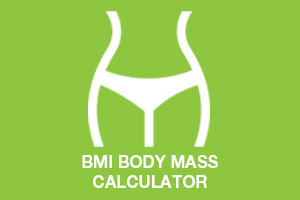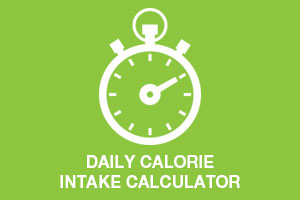Calorie Calculator
Calorie Calculators
BMI Calculator is estimating your Body Mass Index. BMI is a measure of body fat based on height and weight that applies to adult men and women. Use this tool to calculate your Body Mass Index (BMI) and find out if you’re underweight, normal, overweight or obese.
Since body weight (and not percent body fat) is used in determining BMI, there may be problems when to assess people who who have an athletic body type. Because muscle weighs more than fat, those who developed muscles typically appear overweight or obese according to the BMI reference chart. If you are that kind of person do not use BMI as the only method to assess your body composition.
Daily Calorie Calculator will calculate how many calories you need each day based on your height, weight, age, gender, and activity level. The results will show how many calories you may eat in order to maintain or lose weight. Use Lowest Daily Calories value as a approximation for gradually loosing weight. Generally, to lose weight 500 calories are subtracted per day for each pound (about 0.5kg) you want to lose every week. To gain weight add 500 calories per day for each pound you want to gain every week. However, total intake less than 1200 calories are not recommended as well as weight loss of more than 2 pounds (1 kg) per week. Be sure to update your weight and activity levels when they change in order to calculate an accurate calories needed per day.
Calories in macronutrients
Foods are a compilation of three building blocks: carbohydrates, fats and proteins. If you know how many carbohydrates, fats and proteins are in any given food, you know how many calories that food contains. A gram of carbohydrates has 4 calories, a gram of protein has 4 calories and a gram of fat has 9 calories.
Calorie is NOT a Calorie
The human body is a extremely complex biochemical system with elaborate processes that regulate energy balance. Different foods go through different biochemical pathways, some of which are inefficient and cause energy (calories) to be lost as heat. Beside that, different macronutrients have a different effect on the hormones and brain centers that control hunger and eating behavior.
Managing Hunger
When weight gain occurs, a person’s complex energy balance is set to achieve calorie balance at the new, higher level of body weight. So, once weight gain occurs, a new, higher, calorie balance level is established. Your fat, by way of leptin, hormone associated with fullness, tells your brain whether you should eat or not. If you eat a diet that is high in sugar and processed foods, as the sugar gets metabolized in your fat cells, the fat releases surges in leptin. Over time, if your body is exposed to too much leptin, it will become leptin resistant, leaving the brain ‘blind’ to leptin signals, so it still thinks we’re hungry.
Include excersise
Eating less does not immediatelly burning body fat. Instead, it will creates the need for the body to slow down, expending fewer calories. Muscle tissue burns more calories for a given weight than fat does. When you aren’t active, and have a calorie deficit, your body assumes you are starving and that the most important thing is to conserve your fat reserves. Include exercise in your lifestyle. It helps to maintain muscle when under calorie restriction diet.




